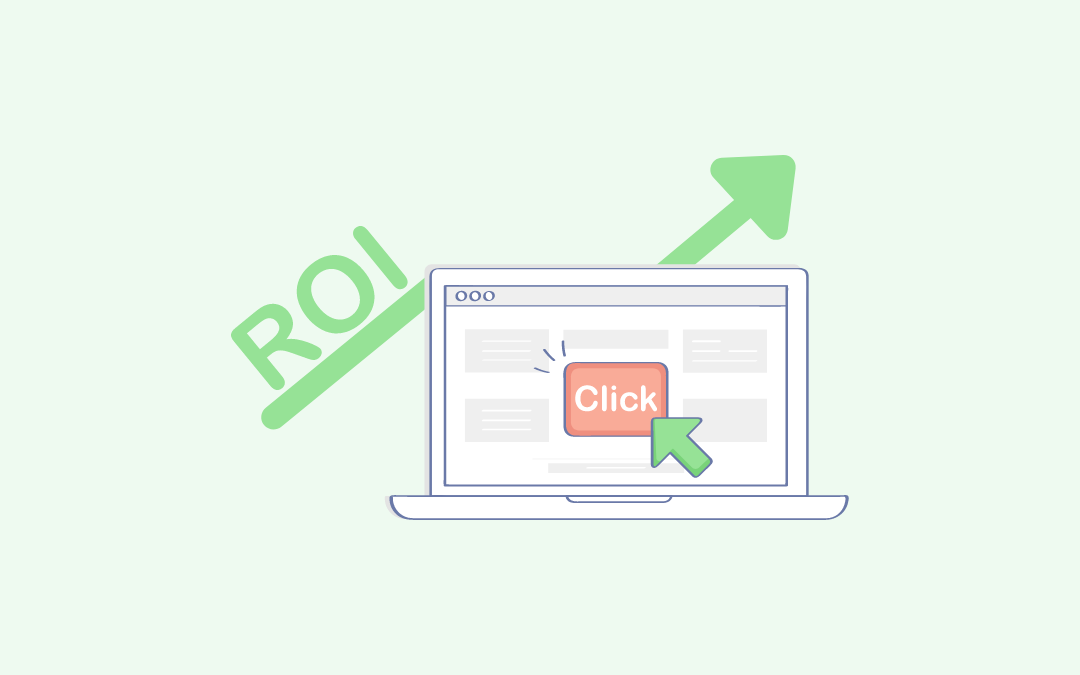With the global market valued at $120 billion, CRM is now an indispensable aspect of businesses that strive to delight their customers.
That’s a huge number, right? It underscores just how vital managing customer relationships has become.
I’ve spent years working with CRM systems— setting them up, improving them, and watching firsthand how businesses either thrive or struggle with them. And if there’s one thing I’ve learned, it’s this: simply having a CRM won’t get you results. You need a plan, a roadmap, and a way to turn that data into meaningful action. That’s where a solid CRM strategy comes in.
Think of it as your blueprint for building stronger customer relationships and driving business growth.
In this guide, I’ll walk through the essential steps to crafting a winning CRM strategy for 2025. I’ll cover everything from defining your goals and understanding your customers to choosing the right tools and measuring your success. Let’s create a CRM strategy that actually works for you.
Let’s get started!
If you’re new to CRM or need a simple way to get started, this video will guide you through the basics –
What Is a CRM Strategy? All You Need to Know
A CRM strategy, or customer relationship management strategy, is a structured approach businesses use to manage interactions with customers and prospects. It involves leveraging technology, data, and personalized communication to enhance customer satisfaction, build loyalty, and drive business growth.
A strong CRM strategy helps businesses:
- Improve customer retention by maintaining consistent engagement.
- Personalize interactions to meet individual customer needs.
- Automate processes like follow-ups and reminders.
- Analyze customer data to refine marketing and sales efforts.
- Increase revenue through better lead management and repeat business.
Let’s take the example of a fictional company to see how a business applies these principles in action.
BrightPath Cleaning’s CRM Strategy
BrightPath Cleaning developed a customer relationship management (CRM) strategy with clear goals and practices aimed at strengthening its customer relationships. The strategy is designed to increase customer loyalty and revitalize customer engagement. The company prioritizes:
- Increasing customer retention by maintaining consistent follow-ups.
- Boosting recurring cleaning contracts through personalized offers and reminders.
- Enhancing customer satisfaction with tailored services and proactive communication.
- Detailed customer profiling to track preferences, past services, and special requests.
- Automated reminder systems for upcoming cleanings to ensure customers never miss a scheduled service.
- Tracking customer feedback to identify areas for improvement and deliver top-tier service.
By integrating these practices, BrightPath Cleaning ensures that every client feels valued and receives the highest level of service.
Why Do You Need a CRM Strategy?
A CRM strategy is essential for businesses that want to build strong customer relationships, improve efficiency, and drive long-term success. Implementing a well-defined CRM strategy provides several key benefits:
1. Improved Customer Retention
Keeping existing customers is just as important as acquiring new ones. A CRM strategy helps businesses stay engaged and retain customers through personalized communication, timely follow-ups, and loyalty programs.
2. Better Customer Insights
With customer relationship management strategies, businesses can analyze customer behavior, preferences, and purchase history to offer more tailored services and products. This data-driven approach enhances customer satisfaction and boosts sales.
3. Increased Sales & Revenue
A structured CRM strategy enables businesses to streamline their sales processes, track leads effectively, and nurture prospects with targeted marketing efforts, leading to higher conversion rates.
Speaking of improving customer experiences, here’s how BIGContacts helped Ewald Kubota boost sales –
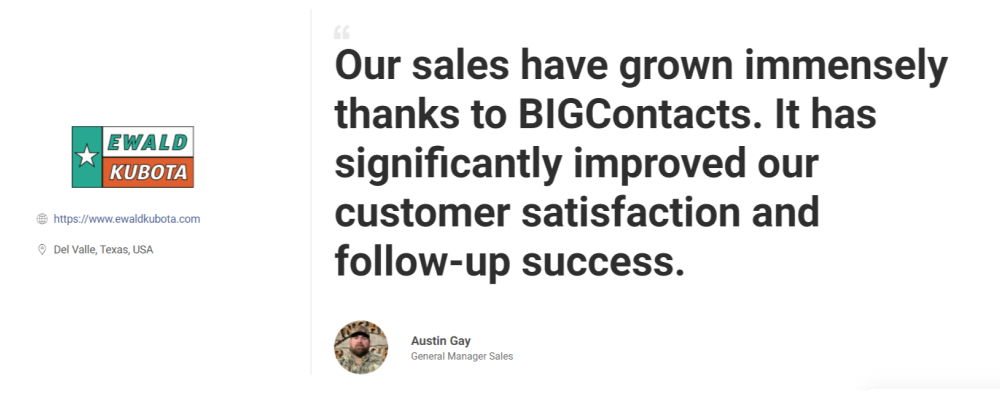
4. Automation & Efficiency
Automating tasks like follow-ups, appointment reminders, and customer inquiries saves time and ensures a seamless experience for both customers and employees. This helps teams to focus on more valuable tasks instead of repetitive administrative work.
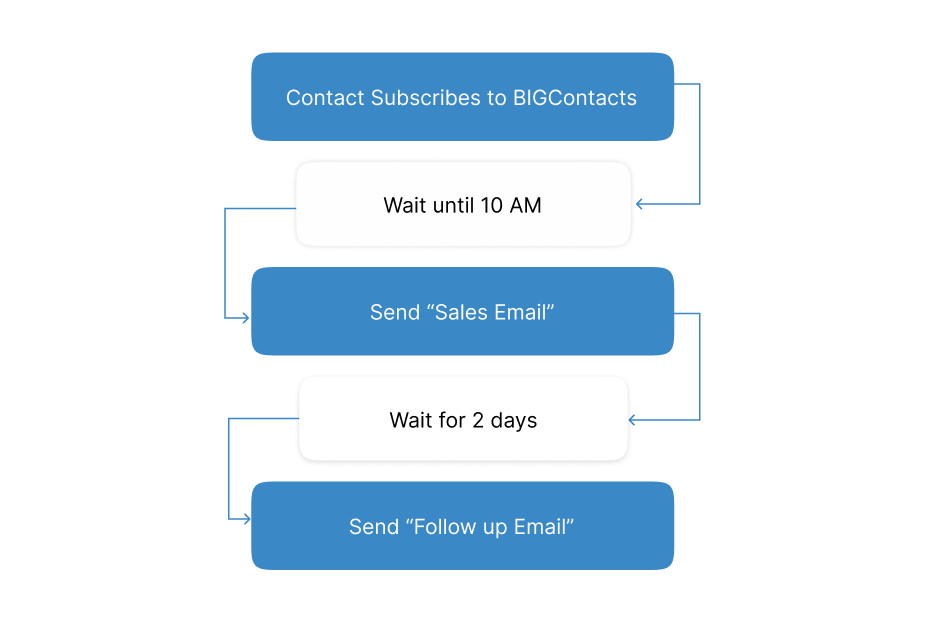
5. Stronger Customer Relationships
A CRM strategy ensures that every interaction with a customer is meaningful and consistent. Businesses can send personalized messages, special offers, and proactive service updates to build trust and loyalty.
6. Better Decision-Making
Access to real-time customer data and analytics helps businesses make informed decisions about marketing, sales strategies, and customer service improvements.
What Makes a Good CRM Strategy?
Before getting started with a CRM strategy, you need a thorough understanding of your business plan. By knowing what your business aims to accomplish, you can define a strategy that complements your existing operations well.
To create an effective customer relationship management strategy for your business, you must:
- Know your customer journeys – This knowledge can help you create a strategy that complies with the needs and wants of your customers. Map out the entire process that turns a lead into a customer.
- Consider the size of your business – This allows you to model your strategy around scalability. It saves you from frequently modifying your processes as you expand your operations.
- Be aware of your buyer’s persona – Know what makes an ideal customer for your company and what value you can offer to them.
- Gather relevant customer data – Collect relevant data from your prospects and customers to build your database. This is a fundamental step that affects your CRM performance.
- Invest in the right tool – Take your time to analyze different solutions available on the market. Find the tool that ticks all the boxes for your organization.
- Have clear business goals and objectives – Lastly, work with the end goal in mind. The best CRM strategy can only be created when you set clear objectives and expectations from its implementation.
How to Create an Effective CRM Strategy in 8 Simple Steps
Your strategy must involve the best customer relationship management tactics to nurture and maintain customer relationships.
However, there isn’t a one-size-fits-all strategy that can be used by all businesses. This is a result of the varying requirements and objectives of every enterprise. You must tailor a customer relationship management strategy that meets the unique needs of your business.
Here is a step-by-step process for creating this strategy:
Step 1: Define Your Business Goals and KPIs
Before implementing a CRM strategy, clearly outline what you want to achieve. Whether it’s increasing customer retention, improving lead conversion, or streamlining support processes, setting measurable goals and key performance indicators (KPIs) will help track progress and ensure alignment with your overall business objectives.
Step 2: Outline the Customer Journey and Define Your Target Customer
Understanding your customers is key to delivering meaningful interactions. Identify their pain points, preferences, and behaviors throughout their journey with your business. A well-defined customer persona will help you tailor engagement strategies that foster long-term relationships.
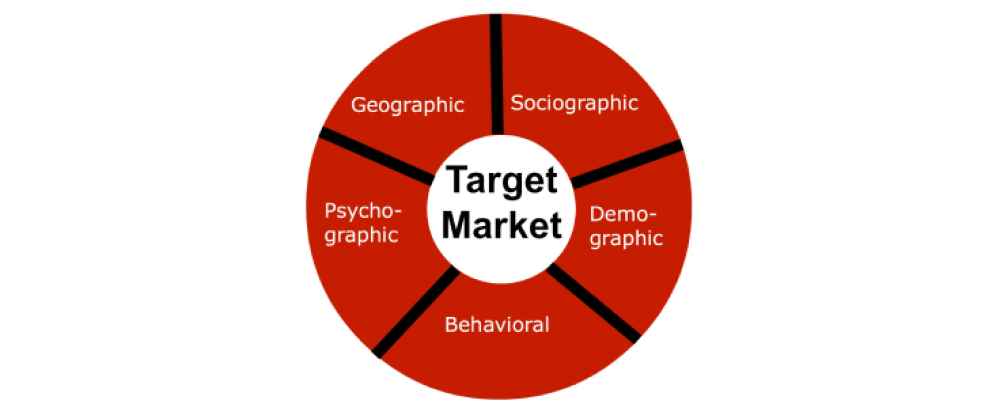
Step 3: Map the Sales Pipeline and Plan Your Customer Experience
Structure your sales pipeline to ensure a smooth transition from prospecting to closing a deal. Plan each stage of the customer experience—from initial contact to post-purchase follow-ups—so that interactions feel seamless and value-driven.
Step 4: Organize Your Internal Processes
A well-structured internal workflow ensures that your teams work efficiently. Establish roles and responsibilities for sales, marketing, and customer support teams. Ensure cross-functional collaboration so that all departments contribute to a unified CRM strategy.
Step 5: Define CRM Components
List the core components of your CRM strategy, such as lead management, data segmentation, automation, and analytics. These elements should align with your business goals and customer needs to optimize relationship management.
Step 6: Invest in a CRM System and Deliver Personalized Experiences
Selecting the right CRM system is crucial for executing your strategy effectively. Invest in a platform that fits your business needs and enables you to deliver personalized experiences based on customer behavior, preferences, and past interactions.
If you want to learn how CRM software really works or how you can get started with one, watch this quick video –
Step 7: Reduce Costs with Marketing Automation
Automating tasks like follow-ups, email marketing, and customer segmentation reduces manual work, lowers costs, and improves efficiency. Marketing automation tools also help businesses deliver timely and relevant communication to customers.
Step 8: Track Your CRM Performance & Engage Stakeholders
Regular performance tracking ensures that your CRM strategy remains effective. Monitor key metrics, collect feedback from customers and employees, and refine your approach as needed. Engaging stakeholders—including sales, marketing, and support teams—helps maintain alignment and continuous improvement.

What Are the 10 Best CRM Strategies for 2025?
CRM strategy focuses on building and strengthening customer relationships. It helps businesses acquire and retain more customers in order to maximize profits. Such a strategy can lay the foundation for business expansion and success by leveraging a CRM system for stronger relationships.
Here are some customer relationship management strategies that can be adopted to improve your CRM system’s effectiveness.
1. Customer Tracking & Personalization
This one goes without saying. For the reliable performance of your CRM system, you must know your customer well.
CRM allows you to be aware of the needs and expectations of the customers you are catering to. This can help you adapt your processes in a way that benefits the customers the most.
Personalization occupies a central position in an effective CRM strategy.
By sharing information that is customized to meet the needs of the recipients, you not only help them make an informed decision but also build trust and credibility.
Visualize how a prospect moves through your sales process with your CRM system. Use this data to identify what actions drive conversions and incorporate them into your business strategy.
Use behavior and preference tracking to make your interactions much more targeted and relevant. Tracking customer activity can provide you with appropriate feedback and insights into improving the performance of your CRM system.
![]()
2. Devise an Effective Content Strategy
“Content is king.” – Bill Gates.
While you may have heard this phrase one too many times, the importance of content marketing cannot be overstated enough.
Content marketing can generate more leads than traditional marketing methods despite being 62% less expensive.
Your CRM efforts can only produce the expected results when you include relevant content that supports customer journeys. Make sure that this content matches your buyer personas and journey stages. This can help you deliver the right message to the contacts at the right time.
Maintaining a channel of informative and engaging content for your contacts can significantly increase your conversion rate. You can include various content types, including white papers, guides, videos, blog posts, etc.
3. Focus on Re-Engagement
Did you know that the probability of reselling to an existing customer is 60-70%?
Customer engagement should, therefore, be an important component of your CRM plan.
Include loyalty and reward programs to show your appreciation for customers. This can foster loyalty and provide you with upselling opportunities. Incentivizing your customers will keep them coming back to your business.
For instance, BIGContacts displays upcoming birthdays, previous interactions, and other personal details, helping you deliver personalized messages and offers to your customers. Additionally, you can use the CRM system to track your customers’ purchasing behavior. This data can help you offer relevant offers and reward schemes to increase customer retention.
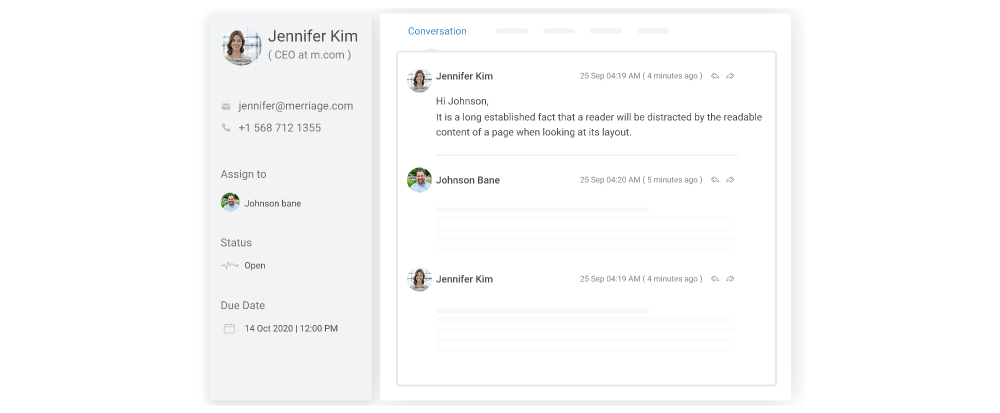
4. Keep CRM Data Clean
While you may collect huge volumes of customer data, it can all go obsolete if it is not managed and updated correctly. Therefore, CRM cleaning and de-duplication should be a part of your CRM strategy. This can maintain the integrity of your CRM database, helping you deliver top-notch services to your customers.
Perform regular cleanups to maintain the effectiveness of your CRM system. This can help you avoid any mistakes or inconsistencies. Get rid of leads that have gone cold and are of no utility to your business. Additionally, ensure that the data stored in your CRM system is up-to-date. This ensures that you do not offer irrelevant information to your customers and risk any loss of credibility.
Regular audits make for an effective strategy to keep the CRM tool working optimally. Define clear objectives for these audits and create a proper maintenance schedule. Adoption of these practices can keep your database free of errors and suitable for use at all times.
For a detailed guide on maintaining accurate and up-to-date CRM data, read How to Keep Your CRM Data Clean: 10 Best Practices to Get Started.
5. Maintain Business Health with Reporting & Analytics
Reporting and business analytics play an integral role in CRM effectiveness.
A strategy that utilizes reports provides deeper visibility into business data. This can be leveraged to make more accurate business decisions and propel the organization’s growth. These reports can provide a better understanding of your business processes and team performance.
To understand this better, let’s take a look at the reporting module of BIGContacts.
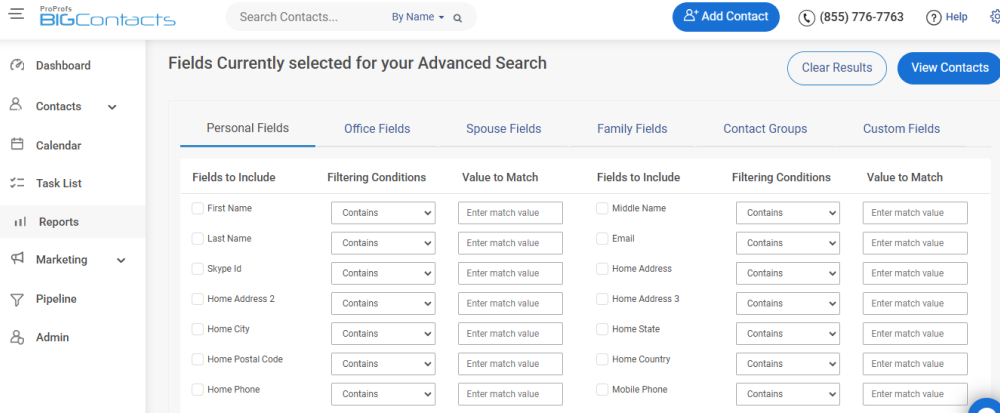
As you can see, the tab allows you to customize the report to include the fields that carry the most significance. This enables you to take a closer look at your business data.
The analytics capabilities of your CRM tool can help you discover trends and identify opportunities for growth. Make more accurate business forecasts and decisions by utilizing the available data efficiently.
6. Track Customer Queries
Customer service plays an integral role in establishing a brand’s reputation and enhancing customer satisfaction. The speed of issue resolution and the quality of support offered greatly impact your customer retention levels.
Build a customer service relationship management strategy to retain more of your existing customers. This requires you to include automated alerts, canned responses, and quick resolution in the plan. Make sure that customers receive prompt and reliable responses to their queries. By handling customer requests and complaints diligently, you can acquire a strong foothold in the marketplace and grow your business consistently.
For instance, a CRM tool like BIGContacts unifies customer tickets with their contact information. This allows your support team to deliver customized solutions tailored to fit the specific needs of the customer.
You can also track and manage support tickets without switching between various applications. Additionally, such unification helps different business divisions work together seamlessly, contributing to more cohesive customer journeys.
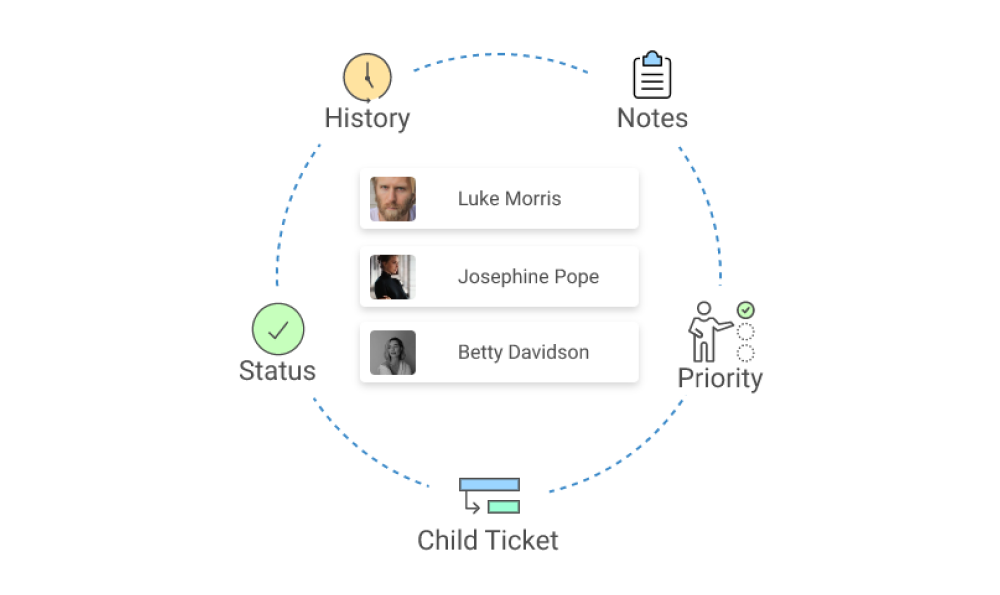
7. Keep the Conversation Going
To create strong customer relationships, you must focus on staying engaged with prospects and customers. For this, you require a CRM strategy that focuses on data synchronization between multiple platforms. This makes it important to invest in a CRM application offering multichannel engagement. Also, make sure that you choose a CRM system that offers mobile access to manage communications from any remote location.
Keeping the conversation going across multiple channels, including emails, calls, live chat, social media platforms, etc., contributes to improved customer experiences. It also enables you to connect with customers using the channel that they prefer to use.
Therefore, multichannel engagement is a powerful strategy that streamlines all communications and helps you drive more meaningful conversations with prospects and customers.
8. Employee Training & Onboarding
Any CRM system is ineffective if its users are not competent in leveraging it.
Employee training is a critical CRM strategy that is highly consequential. It is essential for producing the desired business outcomes, and its lack thereof can be extremely damaging for your profitability. If the users are not trained properly, they cannot utilize the tool to its full potential. Therefore, include adequate training in your strategy to get the maximum benefit out of it.
Furthermore, retraining should also be a part of your CRM plan. This can keep your team members current with the recent trends and developments in the industry.
Create a knowledge base for documentation that can be accessed by team members at any time. Choose a CRM vendor that offers onboarding assistance and training resources. These practices can help ensure that your CRM system is being put to good use.
To ensure your team maximizes the benefits of your CRM system, proper training is essential. Watch this video to learn more:
9. Get on Social Media
There is no denying the power of social media in driving engagement and building a trusting customer base.
Therefore, a strategy centered around social media engagement makes complete sense. The inclusion of social media engagement in your CRM strategy can significantly boost your bottom line. It can help you stay closely connected with your prospects and customers to control the narrative.
Social media is an extremely powerful channel for boosting engagement and enhancing personalization. You can use this integration to control the conversation about your business on various social media platforms. It helps you to discover insights into customer behavior and use it to personalize your offerings.
For instance, BIGContacts automatically enriches your contact profiles with their social media accounts, helping you manage all interactions from a single platform. It also allows you to analyze your company’s position and understand customer sentiment.

10. Automate Processes
An effective way to get the most out of the system is to focus on automation. Such a strategy is much more effective and time-efficient. It frees up time for other critical activities, such as communicating with customers.
Automation also makes for more delightful experiences by helping you reach out to customers at the right time. You can set up automated actions to be performed based on the actions taken by prospects and customers. This ensures that things keep moving forward at all times and that there are no gaps in customer journeys.
It helps you minimize errors and deliver more consistent services. By automating time-consuming tasks that have to be performed routinely, you can save considerable time and cut down costs. Make sure the CRM tool you invest in allows you to automate administrative tasks. This can improve organizational productivity and help you foster stronger relationships with your customers.
How to Use BIGContacts to Create a Remarkable CRM Strategy
A solid CRM strategy is only as good as the software supporting it. Even the best-laid plans can fall apart if the CRM you choose doesn’t align with your needs.
After testing several CRM solutions, BIGContacts stood out for me.
In this section, I will show you how BIGContacts can help you create and implement your CRM strategy in simple steps. I will talk about the various features that can turn your CRM strategy into a reality.
1. Automation
BIGContacts offers powerful automation capabilities, allowing you to cut down the costs, time, and efforts spent on repetitive tasks. Furthermore, the tool can be used to automate task reminders to improve productivity.
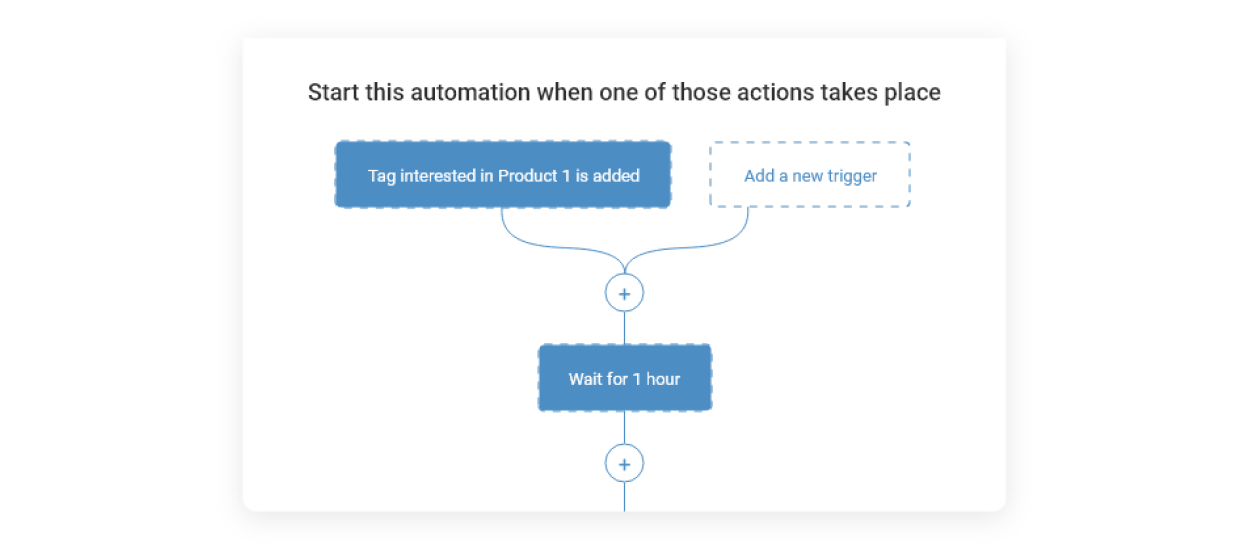
2. Email Marketing
BIGContacts offers marketing automation features to help you boost customer engagement and lead nurturing. Use the tool to set up drip campaigns and deliver the most relevant content to your contacts based on their preferences and current position in the sales funnel.

3. Mobile Access
BIGContacts offers a mobile version of the CRM. This can help you manage your customer relationships on the go. Mobile access allows you to keep your data well-updated and never miss out on important deadlines.
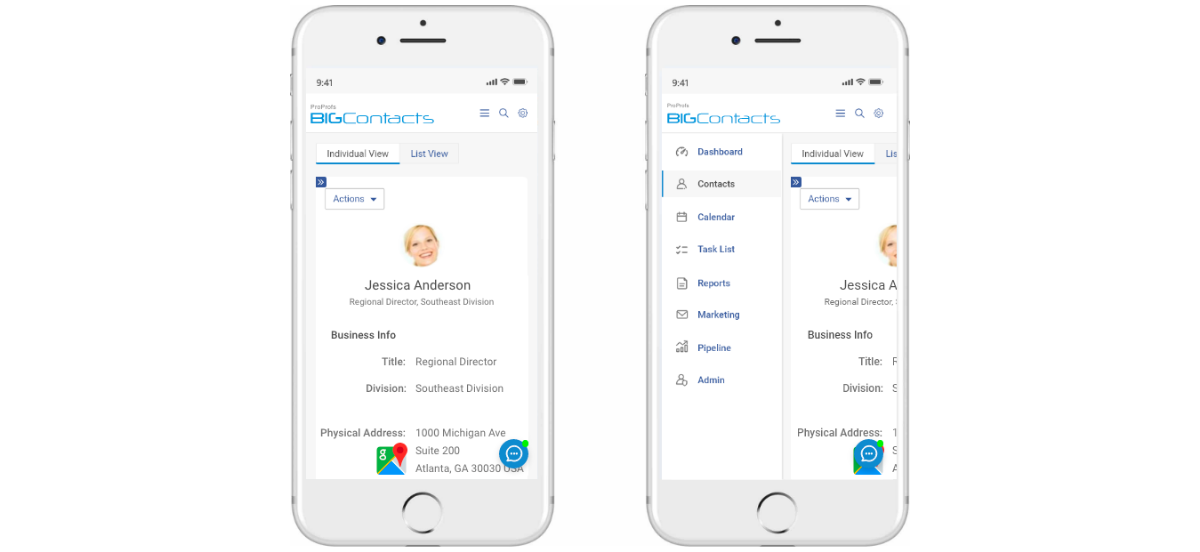
4. Smart Reports
BIGContacts offers intelligent reports and powerful analytics. This can help you track your business performance effortlessly and gather insights to make improvements. You can choose from standard templates or build custom reports to track the most important metrics.
5. Team Collaboration
BIGContacts offers various features that can foster team collaboration and improve organizational efficiency. Team members can share important information and collaborate on tasks easily. The tool can boost transparency and accountability in your organization.
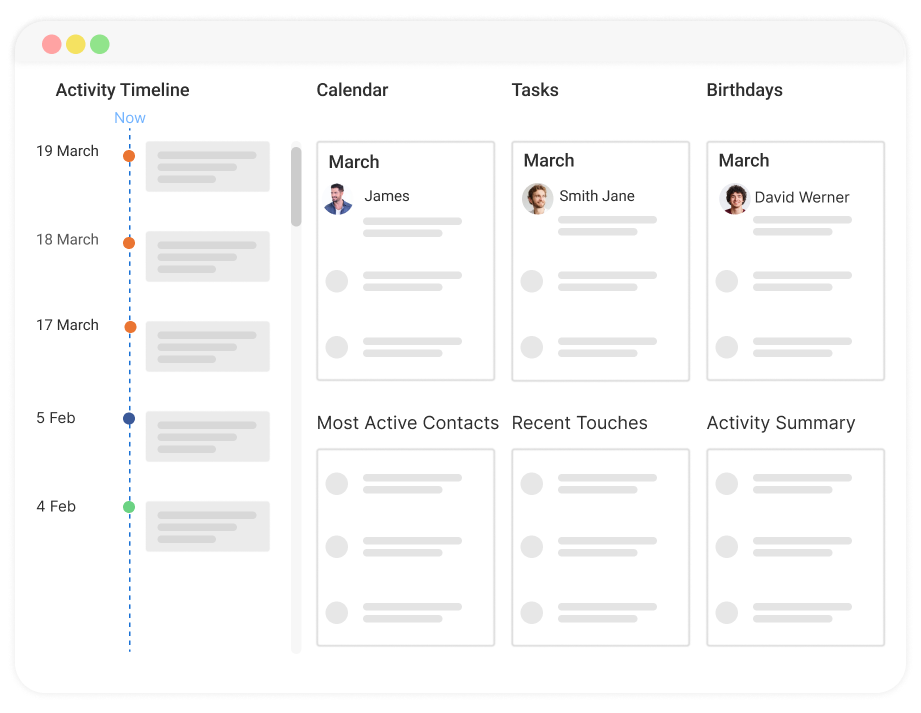
CRM Strategy Examples
Whether you’re looking to enhance customer loyalty or streamline communication, here are some CRM strategy examples that demonstrate how businesses can maximize their CRM efforts.
1. Targeted Communication
Generic messages don’t work anymore—customers expect businesses to communicate with them based on their interests, behavior, and past interactions. A well-executed CRM strategy ensures that every message feels relevant, timely, and personalized, increasing engagement and strengthening customer relationships.

2. Rewards Programs
Loyalty programs encourage repeat business and customer retention by offering incentives for continued engagement. By tracking customer purchases and interactions, businesses can design personalized rewards that make customers feel valued, ultimately strengthening brand loyalty and increasing lifetime value.

3. Personalization
Customers appreciate businesses that understand their needs, preferences, and buying behaviors. CRM tools help companies deliver highly customized experiences by analyzing past interactions, purchase history, and engagement patterns. This enables businesses to provide tailored recommendations, exclusive offers, and relevant content that enhance customer satisfaction and loyalty.
4. Valuable Content
Providing relevant and informative content keeps customers engaged and builds trust. Businesses use CRM data to understand customer interests and deliver content that resonates with them.
Example: A SaaS company analyzes user activity within its platform and sends tutorial videos, how-to guides, and success stories tailored to each user’s needs. This helps improve user engagement and reduces churn.
5. Proactive Customer Support
A great CRM strategy involves anticipating customer needs and addressing issues before they escalate. By leveraging AI-driven insights, automated alerts, and customer behavior tracking, businesses can identify potential concerns early, provide timely solutions, and enhance the overall customer experience, leading to higher satisfaction and long-term loyalty.
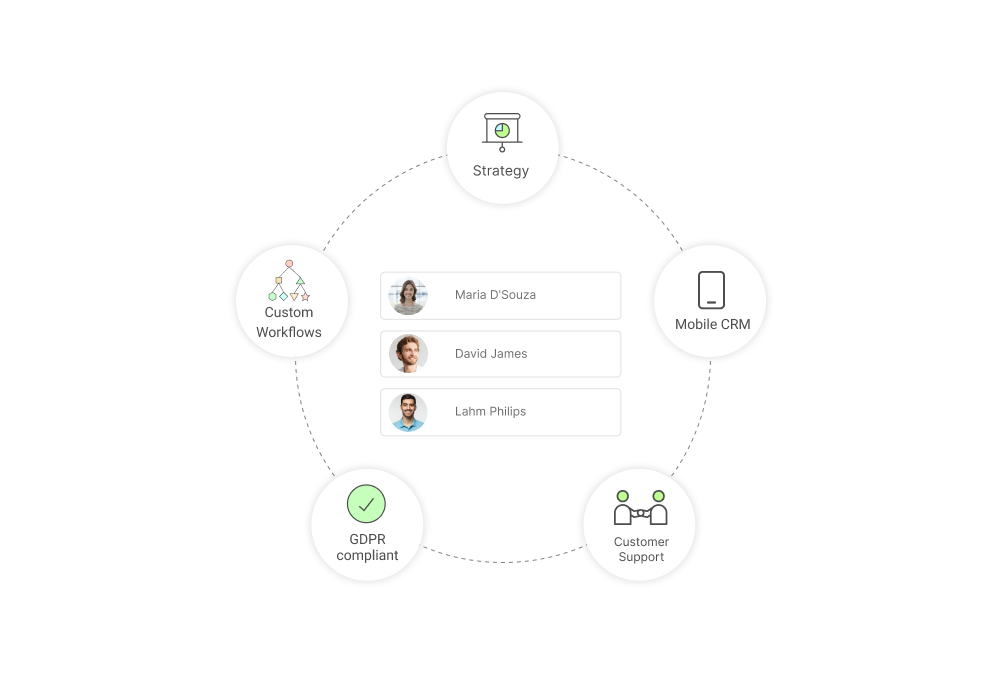
6. Automated Follow-Ups
Timely follow-ups ensure that customers stay engaged and don’t slip through the cracks. Automating this process through a CRM system helps businesses nurture leads, remind customers about pending actions, and maintain consistent communication, ultimately improving conversion rates and customer retention.
Here’s how Innergy Yoga used CRM automation to streamline follow-ups and boost sales efficiency.
7. Customer Feedback and Improvement
A CRM strategy should include gathering customer feedback to enhance products and services. By actively collecting reviews, survey responses, and support interactions, businesses can identify pain points, address customer concerns, and continuously refine their offerings. This proactive approach fosters trust, improves customer satisfaction, and strengthens long-term relationships.
Check Out 100+ Customer Satisfaction Survey Questions
How to Implement a CRM Strategy
A CRM strategy helps businesses strengthen customer relationships, streamline operations, and drive growth. A well-structured approach ensures meaningful customer interactions and long-term success.
Steps to Implement a CRM Strategy
- Define Business Goals – Identify key objectives such as improving retention, optimizing sales, or enhancing personalization.
- Understand Your Customers – Segment customers based on behavior, preferences, and past interactions for personalized engagement.
- Choose the Right CRM System – Select a CRM that aligns with your business needs, integrates with existing tools, and offers automation.
- Train Your Team – Ensure employees understand and utilize the CRM effectively to improve customer management.
- Automate Workflows – Use automation for lead management, follow-ups, and customer support to enhance efficiency.
- Personalize Customer Interactions – Leverage AI-driven insights, personalized emails, and targeted promotions to strengthen relationships.
- Monitor Performance & Optimize – Track key metrics like conversion rates and customer satisfaction to refine strategies.
- Foster Collaboration – Encourage departments to share customer data for a seamless experience across all touchpoints.
- Use Customer Feedback – Gather insights from surveys and reviews to improve CRM processes and customer satisfaction.
- Scale & Evolve – Continuously update your CRM approach with new technologies and strategies to stay competitive.
If you’re looking for how to improve customer relationship management, implementing a structured CRM approach with automation, personalization, and data-driven insights will ensure long-term success.
CRM Strategy: The Key to Enhanced Profitability
Crafting a CRM strategy might be a bit time-intensive, but it is highly rewarding. Outlining your goals, defining a clear strategy, and routinely tracking its performance can have a positive impact on your bottom line.
The step-by-step process of building this strategy mentioned above can help your business build long-lasting relationships. You can adopt any of the strategies listed in this article to enhance the productivity of your CRM system.
The overall profitability of your CRM is a cumulative result of the software you choose and the techniques you employ. Therefore, take time to identify the tool that would suit your organization’s needs and devise a clear strategy for its usage. Invest in a powerful tool such as BIGContacts that offers a broad range of features and a forever-free plan to enhance your customer relationships. This can contribute to an improvement in your business performance and profitability.
CRM Strategy: FAQs
What is CRM, and how does it work?
CRM (Customer Relationship Management) is a system that helps you manage interactions with customers and prospects. It stores customer details, tracks conversations, and automates tasks like follow-ups and emails. With CRM, you can improve relationships, boost sales, and offer better service by keeping everything organized and personalized—all in one place!
FREE. All Features. FOREVER!
Try our Forever FREE account with all premium features!



